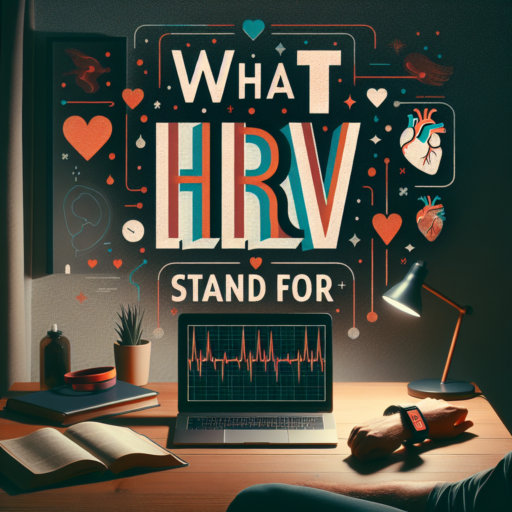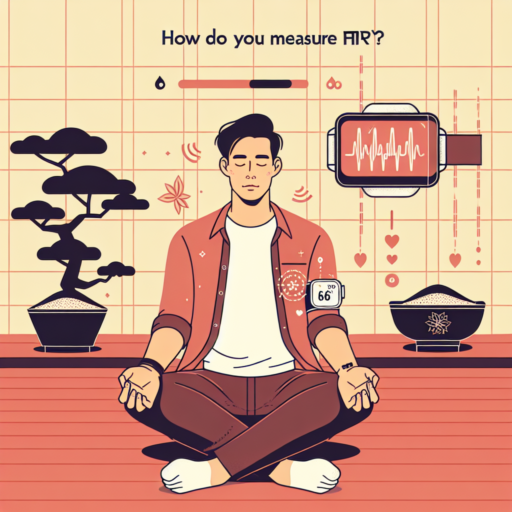What is a good HRV score for my age?
Understanding what constitutes a good HRV (Heart Rate Variability) score for your age involves first recognizing the variability between heartbeats and its significance for personal health. HRV is a key indicator of autonomic nervous system function and general wellness. Generally, a higher HRV signifies a more robust heart health, reflecting the body’s capability to adapt to stress, exercise, and disease. However, HRV scores vary widely depending on age, fitness level, and overall health.
The variability in heart rates can be significantly influenced by age. For individuals in their 20s, HRV scores might naturally be higher compared to those in their 50s or 60s, as HRV tends to decrease with age. It’s crucial to benchmark your scores against normative data for your specific age group. For example, an excellent HRV for someone in their 20s could range from 55 to 105 milliseconds (ms), whereas, for those aged 50 and above, a good range might be from 25 to 45 ms.
Understanding Your HRV Score
- Compare your HRV to age-related norms to determine its significance.
- Consider lifestyle factors that can influence HRV, including stress, sleep quality, and physical activity.
- Seek professional advice for an accurate interpretation of your HRV score.
It’s essential to note that HRV is influenced by many factors, including genetics, lifestyle choices, and current health status. Thus, while age-specific ranges provide a useful benchmark, individual variations mean that what’s good for one person may differ for another. Monitoring changes in your HRV over time and in conjunction with other health indicators provides a more comprehensive picture of your cardiovascular health.
Is 30ms a good heart rate variability?
Understanding heart rate variability (HRV) is crucial when evaluating overall heart health, stress levels, and fitness. A measure of 30ms in heart rate variability can be considered from several perspectives, depending on an individual’s baseline health, fitness level, and lifestyle. HRV represents the variation in time between each heartbeat, and it’s a reflection of the autonomic nervous system’s ability to adapt to stress, rest, and recovery states.
The concept of a «good» HRV, such as 30ms, is not a one-size-fits-all answer. For some individuals, a HRV of 30ms could indicate a well-balanced autonomic nervous system, especially when compared against their own historical data. It’s the fluctuations and long-term patterns in HRV that provide the most insightful information rather than a single isolated measure. Thus, interpreting HRV should always be personalized and contextual.
Factors influencing HRV are myriad, including age, genetics, lifestyle choices, stress levels, and physical activity. Consequently, a HRV of 30ms could be considered normal and healthy for one person but could suggest potential health issues for another. Importantly, when assessing HRV, including a measurement of 30ms, it is essential to consider the broader context of individual health and lifestyle factors.
No se han encontrado productos.
Is 200 heart rate variability good?
Understanding heart rate variability (HRV) is crucial when it comes to assessing overall heart health, but can a number like 200 be considered good? HRV measures the variation in time between each heartbeat, and unlike your heart rate, where a lower number might indicate more fitness, HRV is a bit more complex. It’s not about the higher or lower numbers outright, but rather how they reflect on your autonomic nervous system’s balance.
When examining whether an HRV of 200 is good, it’s essential to consider individual factors such as age, fitness level, and overall health. For some individuals, especially those who are very fit, a higher HRV can indicate a well-balanced autonomic nervous system and good cardiovascular health. This means that their bodies can efficiently switch between fight and flight responses and rest and digest states.
However, interpreting an HRV score like 200 without context might be misleading. Various factors, including stress levels, sleep quality, and even the time of day when the measurement is taken, can significantly influence HRV. It’s always best to compare HRV readings over time rather than relying on a single measurement. Furthermore, using HRV in conjunction with other health indicators provides a more comprehensive view of one’s cardiovascular and overall health.
What is the ideal score for heart rate variability?
Heart rate variability (HRV) is a measure of the variation in time between each heartbeat. This variation is considered an important index of the autonomic nervous system’s function and overall health. Understanding your HRV score can offer insights into your body’s ability to manage stress, recover from exercise, and indicate overall heart health. However, determining the «ideal» HRV score can be more nuanced than a simple number.
The ideal HRV score varies significantly among individuals due to factors such as age, gender, fitness level, and overall health. Generally, a higher HRV indicates better cardiovascular fitness and stress resilience. This means your heart is more adaptable and can efficiently manage the shifts between stress and relaxation. Conversely, a lower HRV might suggest a higher stress level, poorer cardiovascular condition, or reduced recovery capacity.
Factors Influencing Your Ideal HRV Score
- Age: HRV tends to decrease as you age, reflecting changes in the autonomic nervous system.
- Fitness level: Active individuals often have a higher HRV due to enhanced cardiovascular efficiency.
- Lifestyle choices: Habits such as smoking, excessive alcohol consumption, and poor diet can negatively impact HRV.
Understanding your own HRV scores involves tracking them over time and noting how they respond to stress, exercise, and rest. This longitudinal analysis can provide more meaningful insights than comparing your scores against a fixed «ideal.» Recognizing the trends and patterns in your HRV can help you tailor your lifestyle, exercise, and recovery practices to optimize your personal health and well-being.




